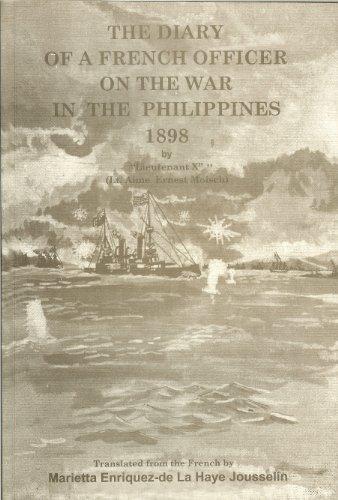Rivalries
Neither the timidity of French diplomacy nor the mediocrity of our naval forces seems to discourage the English interest in us. They continue their vigilant watch over our activities. In Hongkong, they are suspecting French intervention in the Philippines. Actually, these suspicions must have originated from our ministers of the new Republic. Even as our Richelieus of the Far East are ordering ships to go no farther than Shanghai, some Englishmen fear a possible French foothold in Manila. Philippine independence should have been negotiated to help lessen the blow to the Castilian pride. It would have been a golden opportunity for the French to correct a major mistake in the Far East.
“The idea of selling the Philippines to France could be a serious one if it were true, but there are several reasons for not believing this. The struggle for possession of these islands has assumed such proportions that the United States would not know how to accept the loss of their spoils of war. Today, Admiral Dewey is practically the master of Manila. Selling the Philippines to France would not be accepted quietly by either the United States, Germany or Great Britain. If these islands were to become French, they could perhaps, in a certain way, gain from the change. There would undoubtedly be fewer priests, but the natives would still consider it a change for the worse. The French government is gentler than the Spanish domination, but French taxation policies in all her colonies have always been harsher and more restrictive. In any event, this policy inhibits the economic development of all the countries which France has had the goodness to colonize. Neither the advice of businessmen, the French colonialists, nor experience itself has succeeded in instructing the French statesmen.”
But the English, or the others for that matter, are not really concerned about the Filipino. The English are supporting the Americans, for want of someone better to support. At first, when they were still unaware of the possible turn of events, there was a certain ill feeling towards the United States which basically sprang from jealousy. As an English journalist wrote, and I quote: “The important point is that once the Americans are established in the Philippines, their possession of the land can only perhaps be a source of embarrassment for them.” The writer added that this American presence would not create any further objections. “The Philippines represents a jewel which no power in the Far East would accept to see reunited with a possible rival in that part of the world. As long as America limits her sphere of activity to the western hemisphere, she will not be disturbed, but when she has involvements in the east, then she is negating all her old principles and is entering the arena of continental jealousies. The big question is: With Spain dispossessed, who will succeed her? America has no need to involve herself in the complexities of the Far Eastern problem. All the economic reasons which keep us on the alert in China oblige us to maintain an equal vigilance in the Philippines. The state of anarchy in that country would be enough to provoke Germany with a pretext to establish herself there. Japan, which is next door to Formosa, will merely demonstrate a mild interest, but Great Britain, which has the largest commercial involvement in the Philippines, naturally represents an element of considerable weight.”
In May, a rather cynical news item was published in Hongkong. “It is said that President McKinley is determined to retain the Philippines unless he can sell the latter to a country capable of paying war compensation to Spain.” The Americans do not really control Manila, and yet like the English, consider it natural to try to dispose of the country as they see fit. The Filipinos are obviously only a pretext for securing a stronger position in the country. There certainly has never been any question of returning the islands to them.
This unstable situation is responsible for the feverish activities and nervousness of the Germans. This is also the reason for the friendship, colored with envy, shown by the British towards the Americans from whom they are still awaiting compensation for their services. Then there are the contrite and watchful Japanese. The appetites of all are whetted by this prey. Each one wants to take his bite and remove his piece but dares not, since each is fearful of the other.
Meanwhile, the insurgents are no longer hiding the fact that they are discontented. They wait in front of the city, feeling that there has been some foul play. They feel that they have been used as pawns and are too weak to put an end to this game. Initial promises are now being evaded, one by one. At the end of every week, they are allowed to hope to take over Manila. They are aided and encouraged in every way. They would be pushed to the square and lent machine guns and cannons. The Americans were maintaining a fleet in the bay only to allow the establishment of a Philippine republic, and as soon as this was accomplished, the fleet would return to America, its grandiose task accomplished.
But since then, the Union’s soldiers have increased in number. Tomorrow they will number 10,000. The Tagals must act alone and on their own. In order to keep them quiet, orders are transmitted curtly, with the minimum of words. Their cannons have been removed from their possession, and if it were not too risky, their guns would have been confiscated as well. Brawls are breaking out between them and the Americans. The wily Tagals who are actually lacking in good faith show their defiance. They have been told that on the way here, the Americans have plucked the Hawaiian Islands and the Mariannes like ripe fruits from a tree. The Tagal now realizes that he has merely changed masters, and bitter resentment begins to ferment in his breast.
